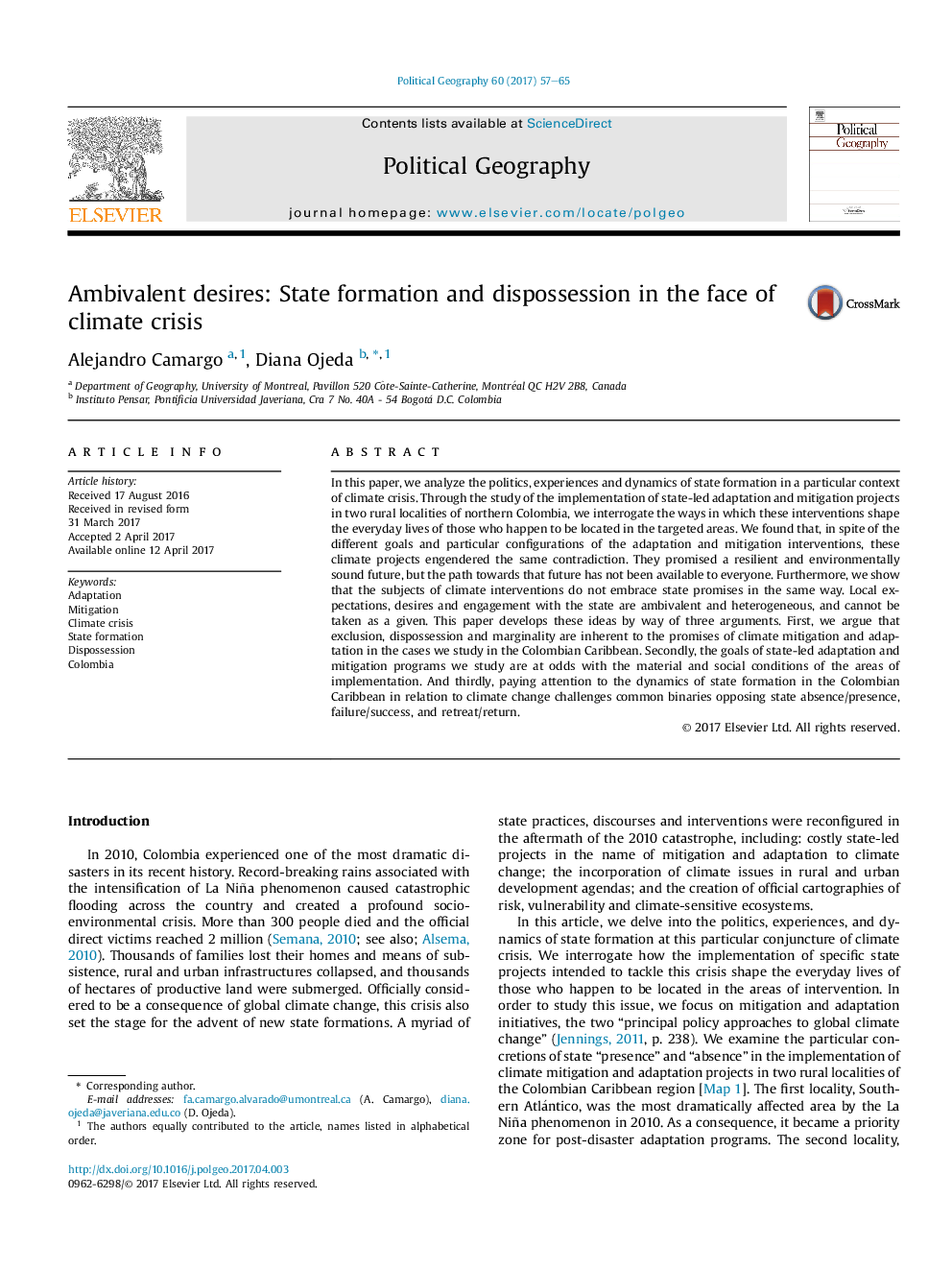| کد مقاله | کد نشریه | سال انتشار | مقاله انگلیسی | نسخه تمام متن |
|---|---|---|---|---|
| 5118510 | 1485572 | 2017 | 9 صفحه PDF | دانلود رایگان |
- We analyze state formation in relation to climate crisis in rural Colombia.
- Climate mitigation and adaptation are based upon socioecological inequalities.
- We show the connections between state formation and dispossession.
- We question binary conceptualization of state presence and absence.
- We conclude that local expectations of the state are ambivalent and heterogeneous.
In this paper, we analyze the politics, experiences and dynamics of state formation in a particular context of climate crisis. Through the study of the implementation of state-led adaptation and mitigation projects in two rural localities of northern Colombia, we interrogate the ways in which these interventions shape the everyday lives of those who happen to be located in the targeted areas. We found that, in spite of the different goals and particular configurations of the adaptation and mitigation interventions, these climate projects engendered the same contradiction. They promised a resilient and environmentally sound future, but the path towards that future has not been available to everyone. Furthermore, we show that the subjects of climate interventions do not embrace state promises in the same way. Local expectations, desires and engagement with the state are ambivalent and heterogeneous, and cannot be taken as a given. This paper develops these ideas by way of three arguments. First, we argue that exclusion, dispossession and marginality are inherent to the promises of climate mitigation and adaptation in the cases we study in the Colombian Caribbean. Secondly, the goals of state-led adaptation and mitigation programs we study are at odds with the material and social conditions of the areas of implementation. And thirdly, paying attention to the dynamics of state formation in the Colombian Caribbean in relation to climate change challenges common binaries opposing state absence/presence, failure/success, and retreat/return.
Journal: Political Geography - Volume 60, September 2017, Pages 57-65
